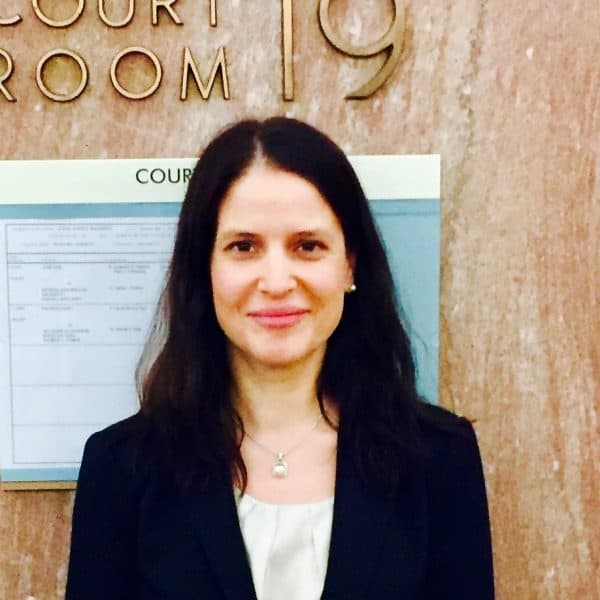Advertisement
Commentary
William Barr's Crusade For 'Traditional Moral Order'

Many Americans are baffled by how far our heavily-credentialed attorney general, William P. Barr, has allowed himself to fall by serving as Donald Trump’s defender-in-chief. Yesterday came the greatest disgrace thus far, as the House Judiciary Committee voted along party lines to hold Barr in contempt of Congress, after he flouted its subpoena requesting delivery of Robert Mueller’s unredacted report and the evidence underlying it. (The resolution will now go to the full House.)
In theory, contempt could lead to criminal prosecution or judicial enforcement of the subpoena, though neither is likely, at least in the short term.
Barr’s self-shaming began with his adoption of farcical, non-lawyerly stances to explain away Trump’s apparent obstruction of justice; he claimed with a straight face, for example, that Trump’s anger and frustration over the Russia investigation were a defense to that crime.
Later, the Senate Judiciary Committee caught Barr in a lie he peddled to the House: Barr pleaded ignorance of Robert Mueller’s dissatisfaction with Barr’s portrayal of the special counsel’s report despite, we now know, receiving a “snitty” letter (Barr’s adjective) from Mueller. Barr, a deeply religious man, showed no hint of moral queasiness in deflecting the accusation. The list of Barr’s own snitty comments during the May 1 hearing before the Senate Judiciary Committee is long.
Trump is Barr’s imperfect vessel, not the other way around.
The contempt finding this week amounts to a hard slap on a proud face, one that Barr sought to avoid by threatening Trump’s invocation of executive privilege to prevent Congress from accessing the full Mueller report. As the committee’s vote proceeded — and it was clear that the outcome would be unfavorable to Barr — the White House claimed that privilege. Democrats then blasted Barr’s own contempt for congressional oversight, while Representative Steve Chabot (R-Ohio) bemoaned this latest affront to a man of Barr’s “upstanding,” even “outstanding,” character.
Indeed. How did Barr get himself in this mess?
Former FBI Director James Comey and others have tried to interpret Barr’s behavior. In an op-ed, Comey posited that Barr lacks the inner strength to resist Trump and has allowed the president to “eat” his soul. A competing theory is that Barr is pursuing his long-held political goal of expanding executive power through the man who just happens to occupy the Oval Office.
Advertisement
The real answer, I believe, is that Trump is Barr’s imperfect vessel, not the other way around. Barr is guided by closely held personal beliefs that have remained consistent across decades and which are supported by Trump’s conservative judicial appointments. Barr is suffering at the hands of imperfect humans for the sake of a much higher calling.
In 1995, Barr wrote that he was troubled by the “steady erosion of the Judeo-Christian moral system” in the United States, and argued that law should aid in the restoration of the “traditional moral order.” Roe v. Wade has contributed to the nation’s “permissiveness,” Barr argues, by causing fewer people to view abortion as “evil.” In short, the “character of the judiciary” is crucially important because, Barr believes, our morals track what judges say is legal.
Barr says Roe v. Wade has contributed to the nation’s “permissiveness,” by causing fewer people to view abortion as “evil.”
Although Barr wrote that article during the first Clinton administration, he's been pursuing similar goals for a lifetime. Barr remains a member of the Knights of Columbus, an organization he joined in 1984, and where he served for years as a “Supreme Board Member.” One of the Knights’ primary objectives is to reduce abortion by funding pro-life pregnancy centers. Barr also recently served on the board of directors for the Catholic Information Center, which is managed by priests from Opus Dei, a wealthy and influential conservative group. (An Opus Dei priest was once Barr’s speechwriter.) Barr’s five-year tenure on the board of directors for the Ethics and Public Policy Center — an anti-abortion think tank dedicated to framing public policy along religious lines — rounds out his profile.
With this conservative, religious background, it is hard to imagine that Barr approves of Donald Trump, a self-admitted adulterer who has been credibly accused with sexual assault. It is similarly difficult to comprehend why someone of Barr’s gravitas would squander a fulsome career without any higher purpose.
So let’s give Barr credit. Through his actions and affiliations, Barr has evinced a profound commitment to upending Roe v. Wade and redirecting our national behavior according to his interpretation of religious ethics. Realizing that Trump is, by definition, temporary, Barr is taking the long view. By defending Trump, and the Republican party, he is promoting the long-term, conservative character of the judiciary.
And to Barr, that is worth it.
